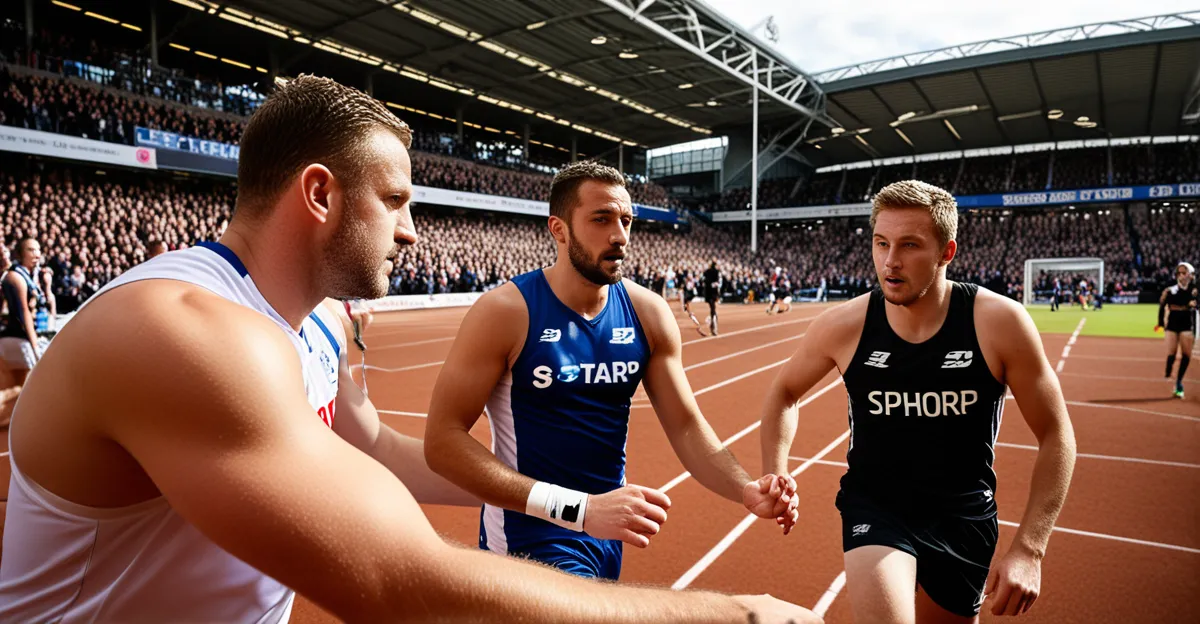Historical roots of sports in the UK
The origins of UK sports are deeply intertwined with the nation’s cultural fabric, shaped significantly by the influence of British public schools. These institutions were instrumental in the early codification of various sports during the 19th century. For example, the structured rules of modern football and rugby were first formalized at schools such as Rugby School and Eton, setting the foundation for their widespread adoption.
In terms of development and spread, sports like football, rugby, and cricket evolved from informal, localized pastimes into internationally recognized games. Cricket, with origins dating back to the 16th century, became a symbol of English rural culture before expanding into a global sport through the British Empire’s reach. Meanwhile, football and rugby gained momentum as working-class and middle-class communities embraced these activities, fostering strong community connections and rivalries.
In the same genre : How Have UK Sports Influenced Global Sporting Events?
The sports history UK has witnessed is more than just game playing; it is a reflection of social and historical contexts that shaped national identities. The rise of organised sports coincided with industrialisation and urbanisation, when structured leisure activities became essential for societal cohesion. These sports not only provided entertainment but also helped cultivate a shared sense of pride and unity across different regions and social classes within the UK.
Overall, the cultural traditions born from these historical roots continue to influence how sports are perceived and cherished today, embedding them firmly within the national consciousness.
In parallel : What technological innovations are shaping the future of UK sports?
Cultural significance and national pride
Sports in the UK have long played a pivotal role in shaping national identity and fostering a sense of belonging. The sporting culture UK embodies is deeply connected to collective pride, often uniting diverse communities through shared passion and historic achievements. Iconic events, such as the FA Cup Final in football or the Six Nations Championship in rugby, serve as moments where sporting traditions are celebrated widely, reinforcing ties within the nation.
Royal patronage has significantly influenced this cultural fabric. The monarchy’s active support and participation in events like Wimbledon or attending football matches highlight how sports are intertwined with national celebrations. Such endorsements not only elevate the prestige of UK sports but also emphasize their importance as unifying symbols.
Moreover, the impact of these traditions extends beyond mere entertainment. Sporting accomplishments are markers of national success on the global stage, contributing to pride and cultural heritage that resonate across generations. This sustained enthusiasm for sports continues to be a defining feature of the UK’s sporting culture UK, deeply embedded within the national consciousness and community life.
Community and social engagement
Community sports UK play a vital role in fostering grassroots participation and strengthening social bonds. Local sports clubs provide accessible platforms where individuals of all ages and backgrounds can engage in physical activity and social interaction. These clubs often function as hubs for community members, promoting inclusivity and a shared sense of belonging through organized practices, matches, and events.
Grassroots participation is fundamental to the sustainability of UK sports history, as it nurtures talent from an early age and perpetuates cultural traditions tied to sports. For example, neighborhood football teams or village cricket clubs encourage active involvement, keeping sporting traditions alive and vibrant across generations.
Furthermore, sports serve as valuable venues for socialising and building community cohesion. They create opportunities for people to connect beyond everyday routines, fostering friendships and mutual support networks. This community engagement often leads to the intergenerational transmission of sports fandom within families, where passion for football UK, rugby UK, or cricket UK is passed down, reinforcing local identity and national pride.
In summary, community sports UK act as crucial pillars supporting both physical well-being and social unity. By enabling grassroots participation and encouraging familial and communal bonds, they ensure that sports remain a dynamic and cherished part of local and national culture.
The prominence of popular sports
Popular sports in the UK prominently feature football UK, rugby UK, and cricket UK, each deeply embedded within the nation’s fabric. Football UK stands out as the leading sport, boasting the highest participation rates and fan following. Its social impact is profound, serving as a focal point for community identity and cohesion. Clubs across England, Scotland, Wales, and Northern Ireland reflect regional pride, with football matches regularly drawing large crowds and intense media coverage.
Rugby UK, both union and league forms, represents a core element of the UK’s sporting identity, particularly in Wales and parts of England. It is celebrated not only for its competitive nature but also for embodying qualities of resilience, teamwork, and tradition. Rugby’s roots in British public schools further highlight its historical significance and ongoing cultural relevance.
Cricket UK, with its centuries-old heritage, remains essential to the UK’s sporting landscape. Although its popularity fluctuates regionally, cricket continues to draw devoted fans and numerous players. It exemplifies sporting traditions linked to the British Empire and rural culture, with events like The Ashes matching attracting national attention.
There are notable regional differences in sport preferences across the UK. Football UK dominates urban areas with extensive club networks, while rugby UK thrives in southern and Welsh strongholds. Cricket UK often finds its most passionate audiences in counties with historic ties to the game. These variations underscore the diverse ways popular UK sports contribute to local and national identities, reflecting historical and cultural nuances unique to the UK’s sporting culture.
Influence of media and commercialization
The evolution of sports media UK has significantly shaped the contemporary landscape of UK sports. The widespread growth of televised sports, especially from the latter half of the 20th century, transformed how fans engage with games. Televised broadcasts of football UK, rugby UK, and cricket UK matches have expanded audiences far beyond stadiums, enabling millions to experience key sporting moments live from their homes. This broadcast influence has increased viewership levels dramatically, contributing to the sustained popularity of major UK sports.
Print media initially played a crucial role by reporting match results and player profiles, fostering enthusiasm and awareness of sporting events. Later, digital platforms and radio broadcasts further diversified how fans access sports content, offering real-time updates, expert analysis, and interactive features. This multi-channel approach ensures broader accessibility, connecting local, national, and global audiences to UK sporting culture.
Commercialisation UK has also impacted sports exposure and development. Sponsorship deals, advertising, and merchandising generate substantial revenue streams that support clubs, leagues, and grassroots initiatives. These financial inflows enable investments in stadium infrastructure, youth academies, and community sports UK programs. However, the increasing role of commercial interests can present challenges, such as scheduling conflicts or ticket price rises, which require careful balancing to maintain fan engagement and inclusivity.
Overall, the interplay between sports media UK and commercial forces has been instrumental in elevating the profile and reach of UK sports, ensuring their continued vibrancy in an ever-changing media environment.
Statistics, examples, and expert perspectives
Understanding sports statistics UK provides valuable insight into the widespread engagement with popular UK sports. For instance, football UK leads with millions of active players and viewers, making it the most participated and watched sport nationwide. Sports participation rates consistently show that football attracts diverse demographics, from youth in grassroots clubs to professional spectators in major leagues. Rugby UK and cricket UK also maintain substantial followings, particularly in regions where their cultural traditions are deeply rooted.
Experts in UK sports history and sociology emphasize how these statistics reflect broader social dynamics. According to expert opinion UK sports, sports participation and fandom are linked not only to physical activity but also to expressions of identity and community cohesion. For example, sociologists highlight that high engagement levels in football UK contribute to local pride and intergenerational connections within families and communities.
Memorable examples further illustrate this enthusiasm. The record-breaking attendance figures for significant events such as the FA Cup Final and The Ashes series exemplify national passion and global interest. Similarly, Rugby UK’s involvement in the Six Nations Championship showcases the sport’s importance in regional and national identity. These facts substantiate how sports statistics UK intertwine with cultural values, emphasizing the enduring appeal and social relevance of popular UK sports.





